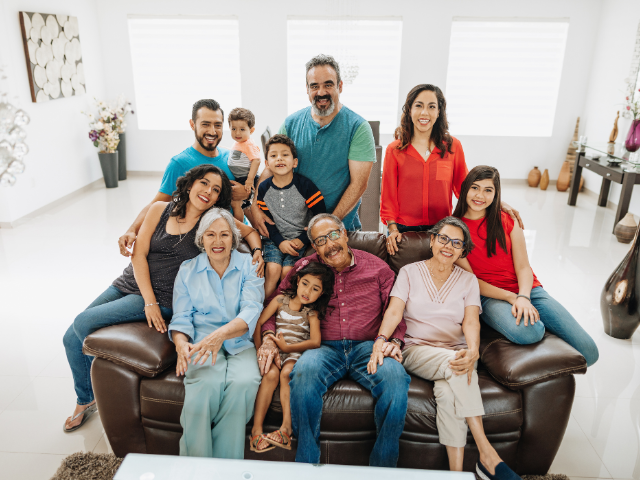Empowering Latino Families Through Community Mental Health Education
The need for accessible, culturally competent mental health care in Latino communities is well-documented. For many Latino families, navigating mental health challenges remains complicated by barriers like language, stigma, and a lack of resources that reflect their cultural values. In response, community mental health education programs have emerged as a powerful tool to support Latino families, reduce stigma, and promote healthier mental health practices.
Through family-centered educational approaches, these programs empower Latino families to recognize and address mental health issues within their households and communities. This article explores how mental health education tailored for Latino families helps reduce stigma, build family support, and ultimately improve access to mental health services.
Section 1: The Importance of Community Mental Health Education for Latino Families
Community mental health education programs focus on teaching basic concepts about mental health, such as recognizing symptoms of anxiety or depression and understanding the importance of seeking support. These initiatives are especially valuable for Latino families, as they often bridge cultural and linguistic gaps, delivering information in Spanish and using relatable examples that align with Latino cultural values.
Latino family-centered mental health programs are designed to make mental health a family and community affair, emphasizing that it’s not just an individual issue. By doing so, these programs encourage open communication about mental health issues among family members and empower families to offer support. Involving families in mental health education also helps reduce the sense of isolation that often accompanies mental health struggles.
Key Benefits of Community Mental Health Education:
- Bridging Language Barriers: Offering resources in Spanish and providing bilingual counselors or facilitators allows participants to engage fully and understand complex topics.
- Creating Safe Spaces for Discussion: Mental health education creates settings where participants can safely discuss their mental health struggles, leading to a reduction in stigma and shame.
Section 2: Reducing Stigma Through Culturally Relevant Education
In many Latino cultures, mental health issues are often stigmatized or misunderstood, which can deter individuals from seeking necessary care. A key component of culturally relevant mental health education is normalizing the conversation around mental health. Programs that are culturally relevant to Latinos help dispel myths, destigmatize mental health conditions, and build awareness that mental health struggles are common and manageable with the right support.
Culturally relevant education focuses on:
- Normalizing Mental Health Conditions: Highlighting that anxiety, depression, and other mental health conditions are prevalent and treatable helps families view these issues as health conditions rather than personal failures.
- Incorporating Community Leaders and Counselors: Community mental health programs led by local Latino mental health professionals or trusted community leaders increase participation and engagement.
- Using Relatable Cultural Examples: Illustrating mental health concepts using culturally relevant stories and metaphors resonates deeply with Latino families.
Through these approaches, educational programs gradually reduce the stigma associated with mental health, making it easier for individuals to accept and seek support without fear of judgment.
Section 3: Strengthening Family Support for Mental Health
Family involvement is critical in mental health, especially in Latino cultures where family ties are deeply valued. Latino families that participate in mental health education become better equipped to support each other. They learn to identify signs of distress, understand mental health diagnoses, and actively support their loved ones’ well-being. Programs often emphasize:
- Building Emotional Resilience: Family-centered education teaches coping skills, emotional regulation, and resilience to help families support one another.
- Understanding Each Family Member’s Role: Family members learn to approach mental health from a unified front, creating a supportive environment that encourages open dialogue about mental health.
By involving entire families, these programs allow each family member to take an active role in creating a nurturing home environment, which can dramatically improve the recovery process and emotional well-being of all family members.
Section 4: How Community Programs Encourage Latino Families to Seek Mental Health Services
Many Latinos hesitate to seek mental health services due to mistrust of the healthcare system or a lack of awareness about available resources. Community-based programs, however, can introduce families to mental health resources in a familiar, trustworthy setting. When families are engaged in these programs, they gain insights into the services available to them and are more likely to pursue therapy or counseling as a result.
Community-based programs serve as:
- Gateway to Professional Support: By introducing families to local therapists or counselors within these programs, community mental health initiatives make it easier for families to continue therapy and counseling after the program ends.
- Resource Hubs: Programs provide participants with information on clinics, hotlines, and support groups in their area, empowering families to seek professional mental health support independently.
Conclusion: The Path Forward
Family-centered mental health education programs represent a transformative approach for Latino communities, equipping families with the tools they need to address mental health with openness and resilience. Through culturally competent education and family engagement, these programs reduce stigma, foster a supportive environment, and empower families to seek and maintain mental health services.
As mental health awareness continues to grow, expanding these community education programs can strengthen the collective well-being of Latino families and ensure that no one feels alone in their mental health journey. With initiatives like those championed by the Latino Behavioral Health Coalition, there is hope for a brighter, healthier future for all Latino families.

Our Mission
Our constituents are our members and the clients served by our members and the greater society that benefit from the mental health services and well-being of Latinos.
The LBHC is committed to improve, advocate and prioritize mental health services in Philadelphia and Pennsylvania.
Become A Member
The LBHC provides its members with opportunities to create and shape platforms in support of our collective principles/missions and developing policy priorities.
As a member of the LBHC, you are connected to a network of Latino behavioral health and social justice organizations and provided with access to resources, policy briefings, external engagement opportunities, and individualized policy capacity building advice and support.
 English
English  Espanol
Espanol